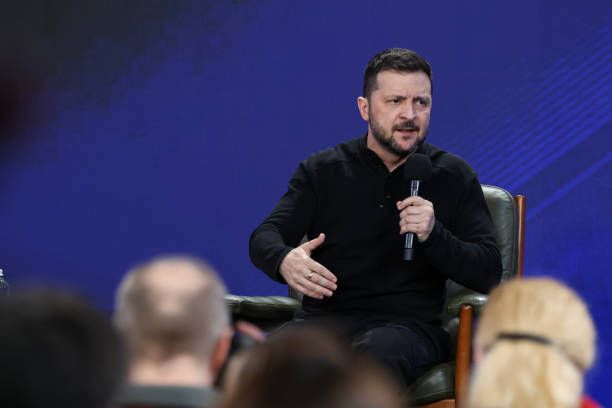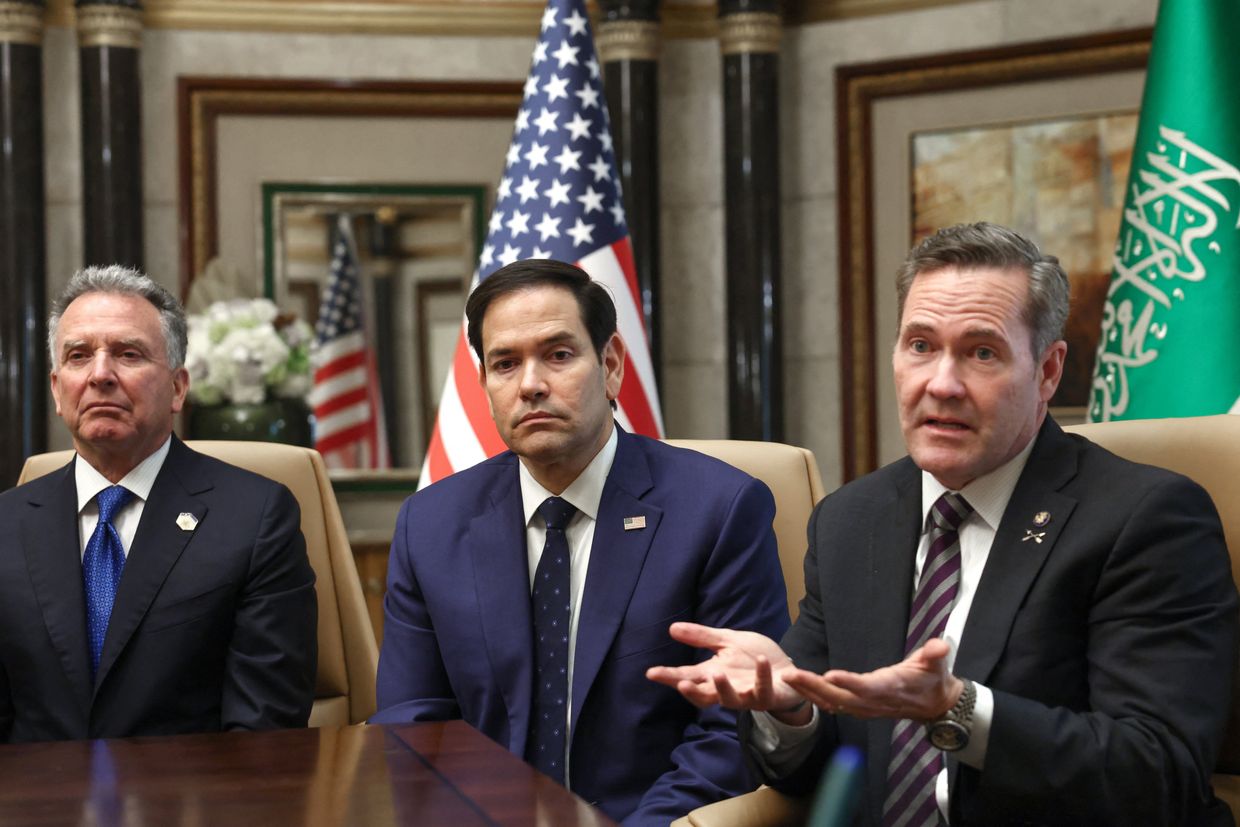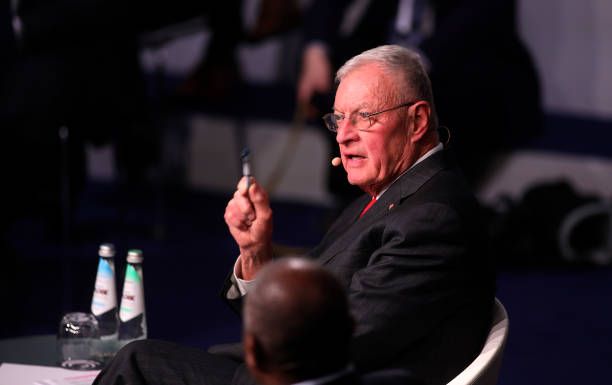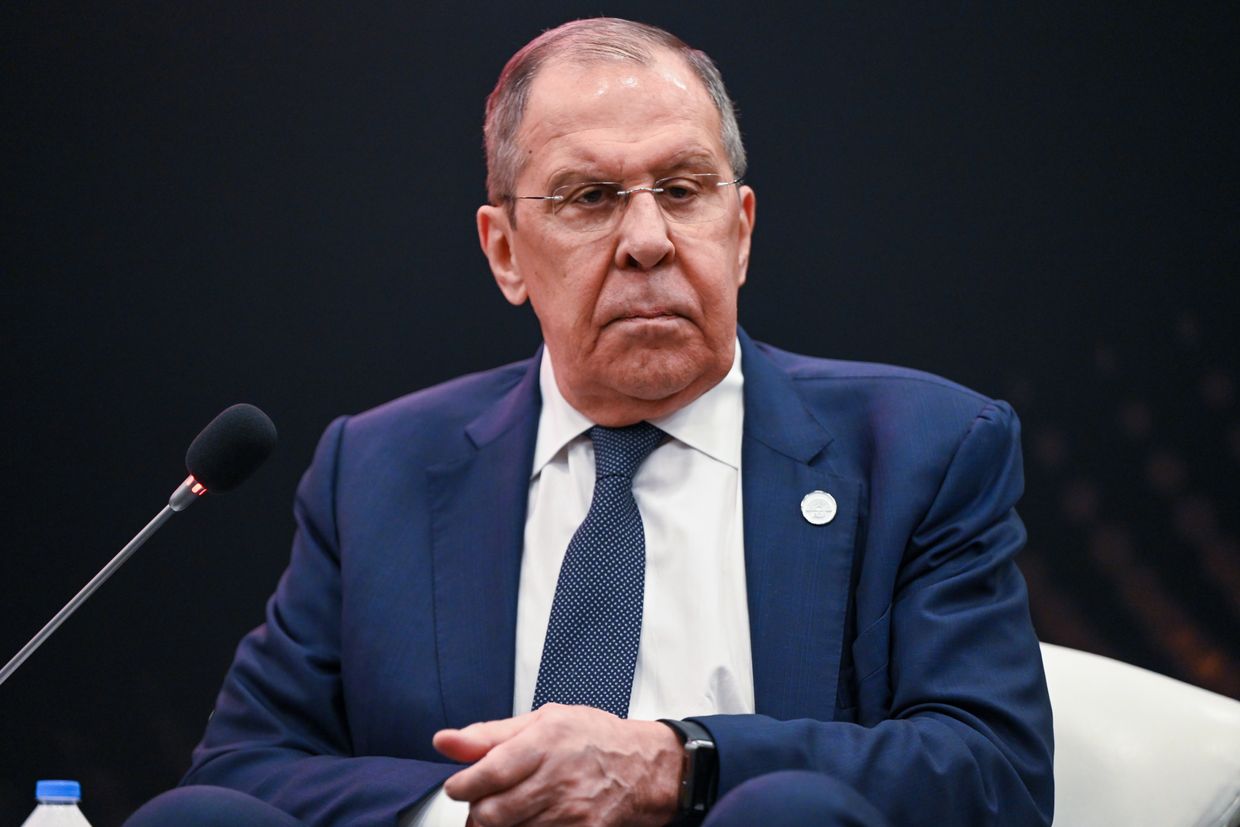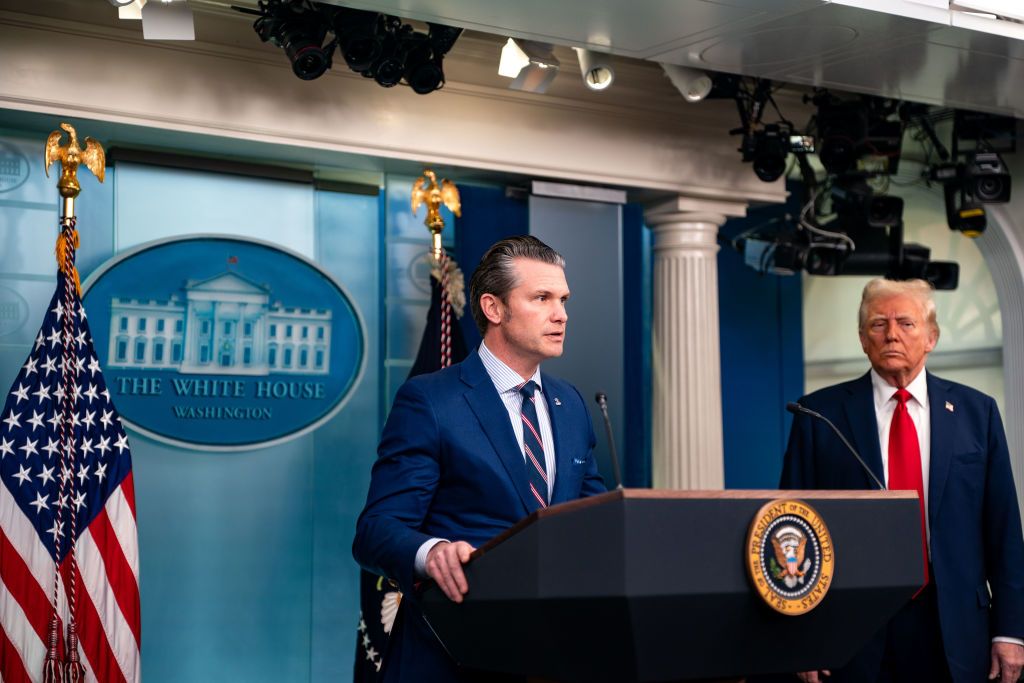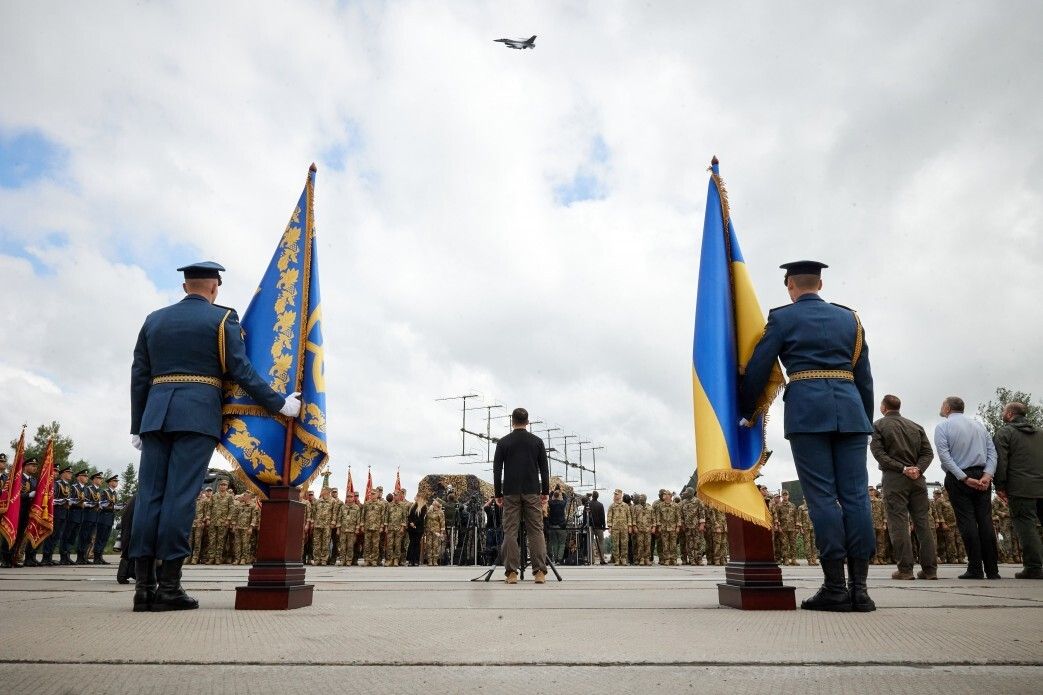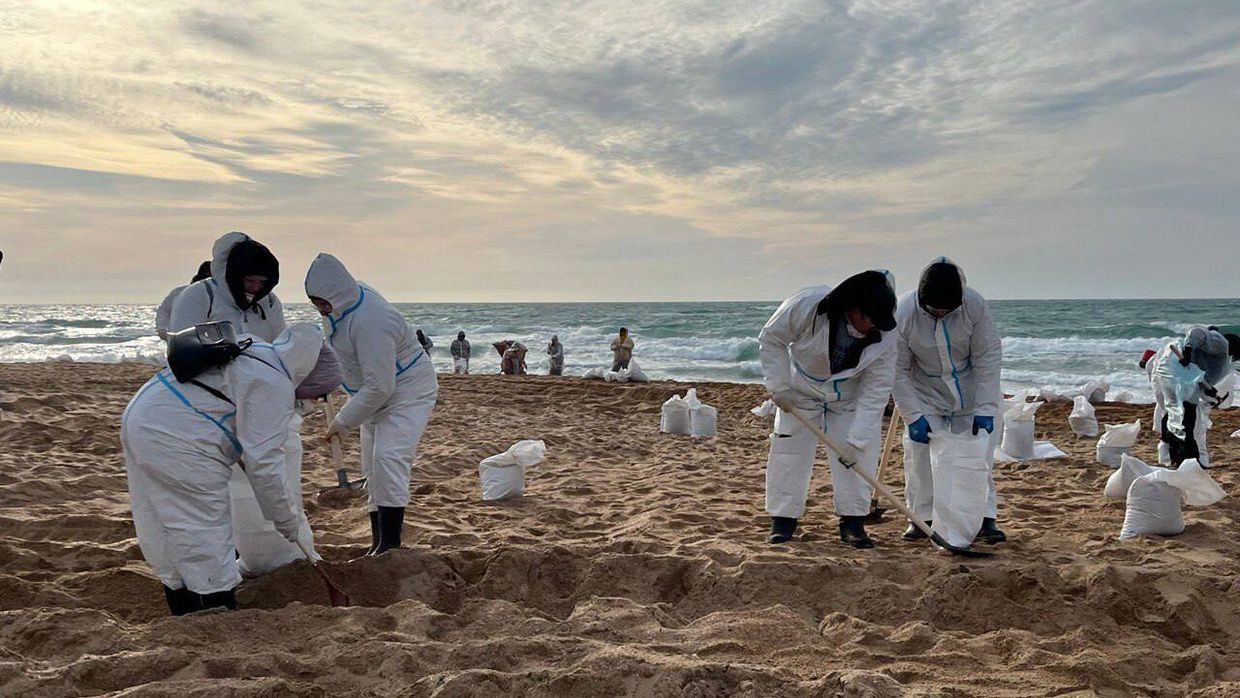Key developments on Feb. 22-23:
- Zelensky willing to step down in exchange for peace
- Russia launches largest drone attack since start of full-scale invasion
- US mineral deal offers no security guarantees for Ukraine, NYT reports
- Zelensky won't sign natural resource deal that 'will be paid by 10 generations of Ukrainians'
- Trump-Putin meeting preparations already underway, Russia claims
President Volodymyr Zelensky is ready to step down as president if it means “peace for Ukraine,” he said during the Ukraine: Year 2025 forum in Kyiv on Feb. 23.
Talks about elections in Ukraine have amplified in recent months despite martial law prohibiting them. Zelensky, who was elected in 2019 for five years, came under fire from U.S. President Donald Trump who recently accused the Ukrainian leader of not wanting to hold elections.
“I am focusing on security today and not in 20 years time. I don’t plan to be in power for 10 years,” Zelensky told the forum.
Ukraine has repeatedly said that it won’t hold elections until the war is over, in line with martial law as Russia constantly bombards the country and occupies one-fifth of its territory.
With Trump amping up peace negotiations with Russia this month, many expect an election to follow shortly after a ceasefire is agreed.
These constraints have not stopped Trump from repeating Russian propaganda points and accusing Zelensky of being “a dictator.”
Ukrainian NGOs have said organizing an election during the war is “impossible,” as elections must be preceded by a stable ceasefire backed by security guarantees and proper preparations for the election process, including restoring relevant infrastructure.
Zelensky's administration pledged to hold elections "immediately" after the end of the war, thus allowing soldiers and refugees to safely take part in the vote as well.
"The Ukrainian consensus on elections no earlier than six months after the end of martial law is supported by the authorities, the opposition, and the society," the statement by the Ukrainian NGOs read.
According to a February survey, 69% of Ukrainians believe that Zelensky should remain in office until the next elections can be held after the end of martial law. Several opposition politicians also supported this position, warning against Russian attempts to use the elections to divide society.
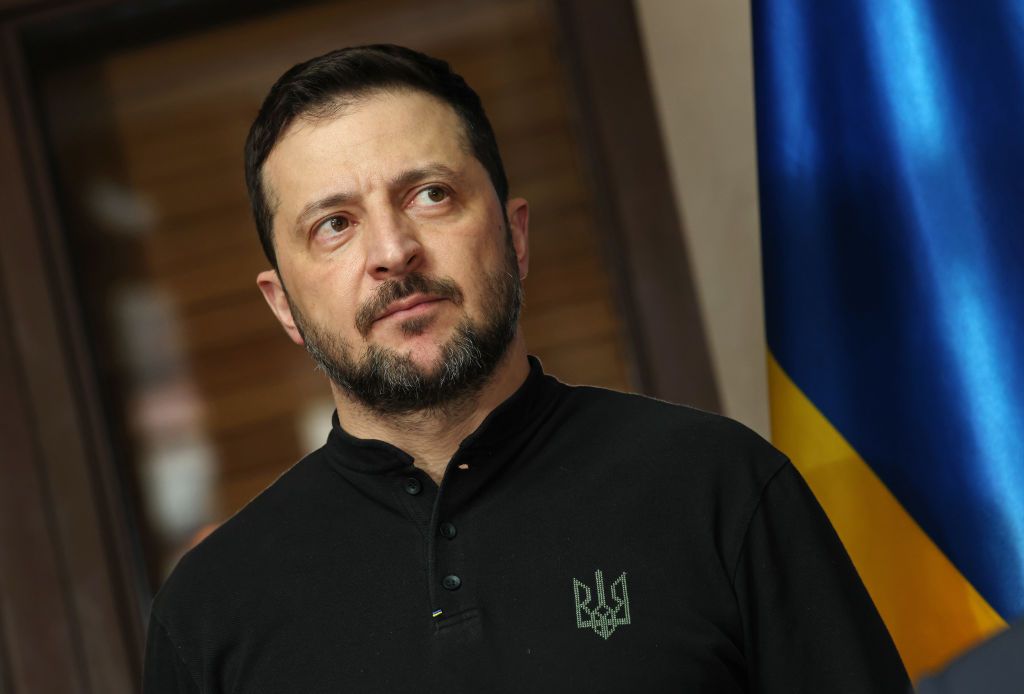
Russia launches largest drone attack since start of full-scale invasion
Russia launched its largest single drone attack overnight since the start of the full-scale invasion with 267 drones entering Ukrainian airspace, Air Force spokesperson Yuriy Ihnat said on Feb. 23.
Explosions were heard across the country, including in Kyiv where drone debris fell in the center of the capital and other districts that two houses and a post office, Kyiv’s military head Tymur Tkachenko reported. Ukraine’s air defense shot down 138 drones while 119 decoy drones were lost.
While there were no reported casualties in Kyiv, three people were injured in Odesa Oblast after a fire broke out at a residential house, reported Odesa Oblast military head Oleh Kiper.
In addition to the drone attacks, Russian forces also launched missiles at Ukraine. In Zaporizhzhia, a 53-year-old woman was injured after Russian shelling hit residential areas causing a fire.
The worst attack occurred in Kryvyi Rih, Dnipropetrovsk Oblast, where a missile strike killed one person and injured five. The attack inflicted heavy damage on the city's civilian infrastructure, including 12 apartment buildings, an infrastructure facility, a retirement home, and a church.
The strike also caused damage to social and industrial buildings, a gas station, and multiple vehicles.
The night before, a Russian drone attack killed a man in Kyiv Oblast. Several civilian buildings were damaged in the city, including an apartment block and an educational facility.
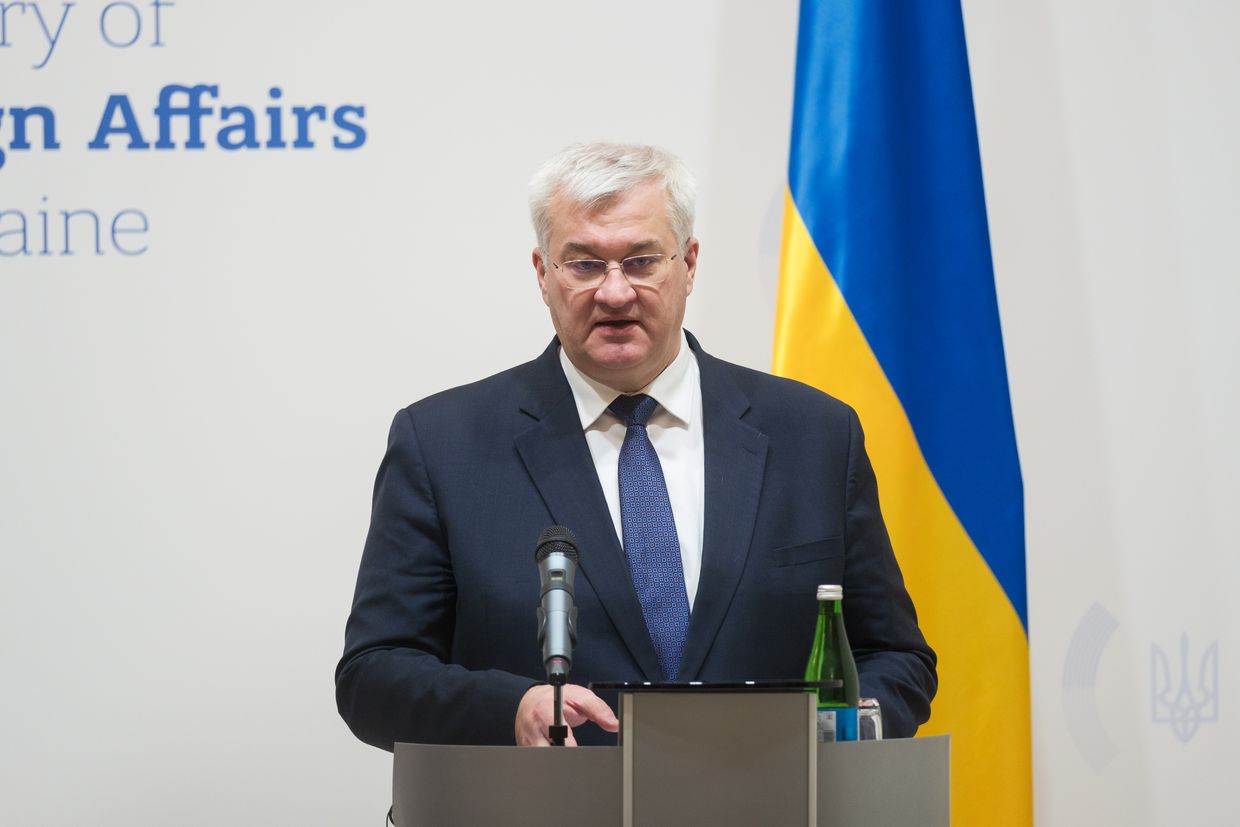
US mineral deal offers no security guarantees for Ukraine, NYT reports
The current U.S. proposal regarding Ukraine's critical minerals seeks 50% of revenues from Ukraine's natural resources while offering no security guarantees in return, according to a draft of the agreement seen by the New York Times (NYT).
The U.S. and Ukraine have been working intensively over the past few days to hammer out the details of a revised version of the agreement. Ruslan Stefanchuk, speaker of Ukraine's parliament, said Kyiv aims to conclude the agreement on Feb. 24, the third anniversary of Russia's full-scale invasion.
The terms of the revised draft are virtually the same as those of an earlier version rejected by Zelensky, the NYT reported, citing a draft of the agreement dated Feb. 21. In some cases, the U.S. demands are even more stringent.
The agreement demands 50% of revenues from Ukraine's natural resources, including critical minerals, oil, and gas, as well as stakes in ports and other key infrastructure through a joint investment fund.
The new version says that the U.S. would hold a 100% financial interest in this fund, and that Ukraine should contribute to the fund until it reaches $500 billion.
This amount vastly exceeds Ukraine's actual resource revenues, which totaled $1.1 billion in 2024, and is over four times the value of U.S. aid to Kyiv.
That $500 billion figure was not listed in the original proposal presented to Zelensky by U.S. Treasury Secretary Scott Bessent on Feb. 12. Trump has cited the number in public comments, claiming on Feb. 10 that Ukraine had "essentially agreed" to a $500 billion resource deal.
When Zelensky then refused to sign the proposed agreement on the grounds that it offered no security guarantees, Trump lashed out at the Ukrainian president, echoing Kremlin talking points by calling him an "unelected dictator."
A visit from Trump's Special Envoy on Ukraine and Russia, Keith Kellogg, appeared to ease tensions and revive negotiations on the resource deal. U.S. and Ukrainian officials have reportedly been working through the night to hammer out an agreement.
Trump said on Feb. 21 that the U.S. and Ukraine were "pretty close" to reaching a deal.
The new document provides no specific security guarantees, according to the NYT. It instead says the U.S. will provide long-term economic development support for Ukraine.
Trump said in early February that he wanted to strike a deal with Ukraine involving access to rare earth minerals in exchange for continued aid — a change in U.S. foreign policy that turned support for Ukraine's defense and sovereignty into a business transaction.
Ukraine said it was open to such a deal and has stressed the need for concrete security guarantees. A former senior Ukrainian official called the first U.S. proposal "a colonial agreement" and said Zelensky could not sign the document on those terms.
Reuters reported on Feb. 21 that the U.S. has threatened to cut off Ukraine's access to Starlink internet terminals it it does not sign the agreement — a claim SpaceX CEO and Trump ally Elon Musk has denied.
Zelensky won't sign natural resource deal that 'will be paid by 10 generations of Ukrainians'
Zelensky pushed back at the U.S.’ demand for a $500 billion fund to be financed with Ukrainian natural resource revenue, saying that the U.S.’s aid grants are not debts, during the Ukraine: Year 2025 forum in Kyiv on Feb. 23.
Zelensky said that he will not recognize such a large sum since it vastly outweighs the $100 billion the U.S. has sent to Ukraine under former President Joe Biden.
The president added that the aid given to Ukraine cannot be counted as debts since they are grants and stressed that security guarantees need to be included in the deal. So far no such guarantees have been put in place, he said.
“I am not signing something that will be paid by 10 generations of Ukrainians," Zelensky said, adding that he wants a dialogue with Trump.
The initial White House proposal sought a 50% interest in Ukraine’s natural resources, including critical minerals, oil and gas, as well as critical infrastructure and ports. Zelensky said Ukraine is not ready to “split 50/50 without knowing what’s ahead.”
The Ukrainian leader also pointed out that the U.S. proposed to return future aid with an interest of 1:2. “For every U.S. dollar, Ukraine must return two. In simple terms, this is 100% of the loan,” he said.
The exact details of the current proposal have been kept secret but the administration of President Donald Trump has ramped up pressure on Kyiv to sign. Ukraine has had a back and forth with its American counterparts for nearly two weeks and Kyiv will start working to conclude an agreement with the U.S. on Feb. 24, said Ruslan Stefanchuk, speaker of Ukraine's parliament.
The value and volume of Ukraine’s critical minerals are unknown with the figure hotly debated among experts as assessments are based on old Soviet-era figures. However, $350 billion worth of natural resources are located in the Russian-occupied territories, First Deputy Prime Minister and Economy Minister Yulia Svyrydenko said at the forum.
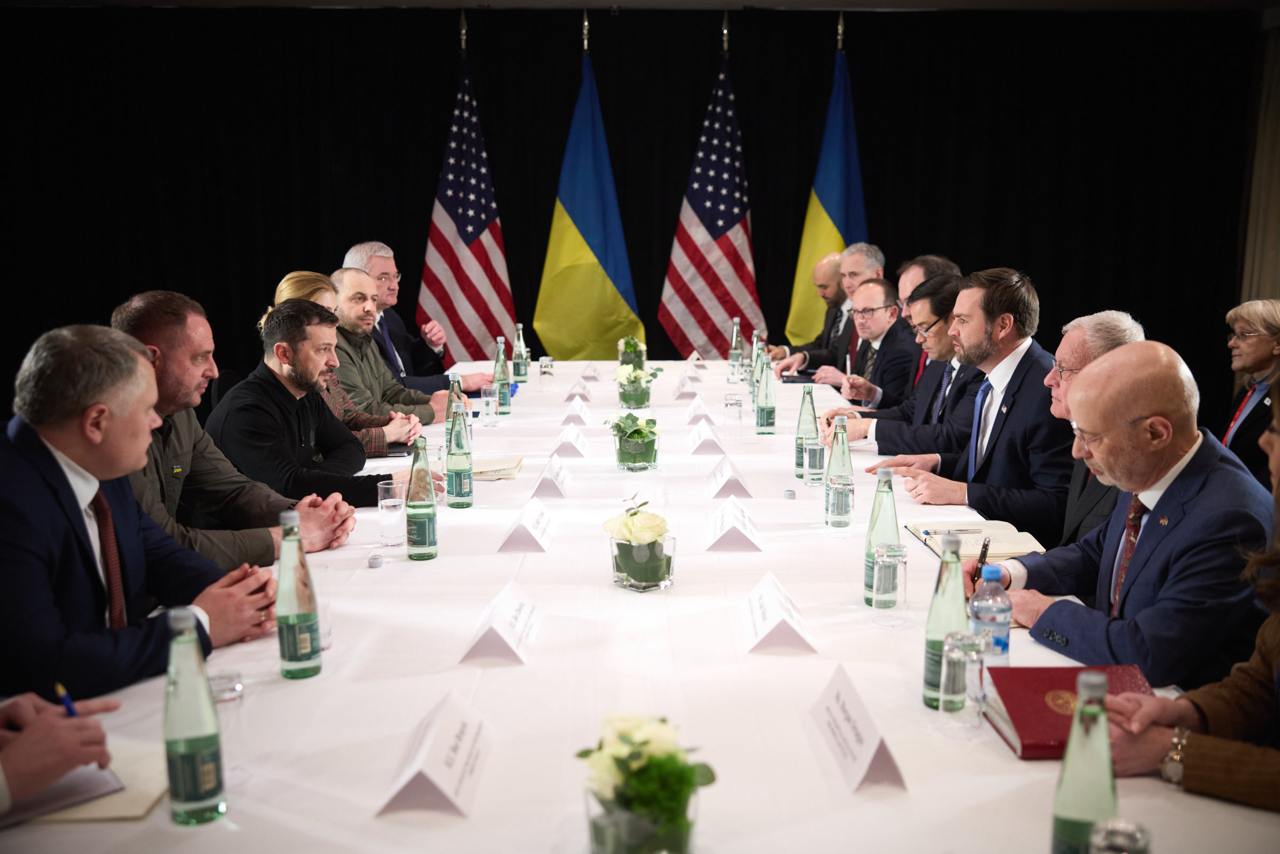
Trump-Putin meeting preparations already underway, Russia claims
Arrangements for an in-person meeting between Trump and Russian President Vladimir Putin are already underway, Russia's Deputy Foreign Minister Sergei Ryabkov claimed on Feb. 22.
Trump previously said he would "probably" meet Putin before the end of February.
The two leaders could discuss a broad range of global topics in addition to the war in Ukraine, Ryabkov told Russian state media.
"The question is about starting to move toward normalizing relations between our countries, finding ways to resolve the most acute and potentially very, very dangerous situations, of which there are many, Ukraine among them," he said.
Preparations for the meeting are still in the early stages, Ryabkov said, and organizing the summit will require "the most intensive preparatory work."
U.S. and Russian delegates may hold meetings over the next two weeks in preparation for the Trump-Putin talks, he added.
The U.S. and Russia have already held their first direct talks since Russia's full-scale invasion of Ukraine, signaling and end to Moscow's political isolation from the West. Representatives met in Saudi Arabia on Feb. 18 to discuss preliminary steps towards ending the war in Ukraine.
Trump announced that U.S. and Russian envoys will hold another round of talks in Riyadh on Feb. 25.
Ryabkov did not provide any details as to a potential date or location for the meeting between Trump and Putin. Trump has said that the leaders' first meeting will take place in Saudi Arabia.
U.S. Secretary of State Marco Rubio discussed the possibilities of a Trump-Putin meeting with his Russian counterpart, Sergey Lavrov, during the Saudi Arabia talks. Rubio said on Feb. 20 that a face-to-face meeting between the two leaders would depend on whether "we can make any progress" towards a peace agreement.
Ukraine and European leaders have objected to Ukraine's exclusion from the U.S.-Russia talks. Zelensky said he would not accept the outcome of any negotiations that did not involve Kyiv's participation.
Trump has already spoken to Putin regarding his goal to broker a quick ceasefire in Ukraine. Trump spoke to Putin for nearly 90 minutes in a phone call on Feb. 12, holding a separate call with Zelensky later that day.
Following the Riyadh talks, Putin announced that he would "gladly" meet with Trump and said he hoped Washington and Moscow would work out the war in Ukraine in advance of their meeting.




